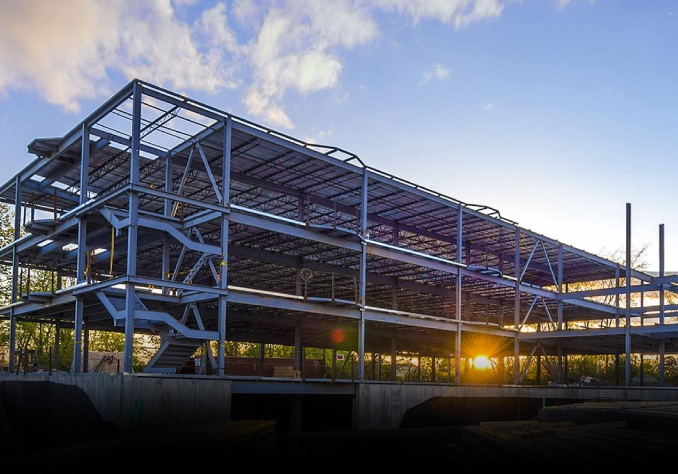Innovative Custom Fabrication Solutions for Reliable Pressure Vessel Tanks

In the industrial sector, the demand for specialized equipment is constantly rising due to evolving manufacturing needs, safety standards, and efficiency goals. Among the many critical components in industries like oil and gas, pharmaceuticals, food processing, and chemicals, the pressure vessel tank holds a prominent place. These vessels are essential for storing gases or liquids under pressure, making them indispensable for many applications. However, not every operation can use off-the-shelf equipment. This is where custom fabrication solutions become invaluable, offering tailor-made designs that match the exact requirements of a project.
Understanding Custom Fabrication Solutions
What is Custom Fabrication?
Custom fabrication is the process of designing and manufacturing equipment or components based on specific project requirements. Unlike mass-produced products, these solutions are tailored to fit the unique operational, spatial, and performance needs of the client. This approach ensures maximum efficiency, safety, and longevity of the equipment.
Why Customization Matters in Industrial Applications
Different industries face varying challenges—ranging from harsh environmental conditions to unique material handling requirements. Custom fabrication solutions allow manufacturers to address these challenges head-on. Whether it’s a unique shape, size, material, or design, customization ensures that the equipment works seamlessly with the rest of the operational setup.
The Role of Pressure Vessel Tanks in Industry
What is a Pressure Vessel Tank?
A pressure vessel tank is a container designed to hold gases or liquids at a pressure substantially different from the ambient pressure. They can be used for a wide range of purposes, including chemical storage, steam generation, and compressed air systems.
Applications Across Industries
-
Oil and Gas – For storage and transport of pressurized hydrocarbons.
-
Chemical Processing – To safely store reactive substances.
-
Food and Beverage – For handling carbonated beverages or high-pressure pasteurization.
-
Pharmaceuticals – For sterile storage of liquids and gases.
-
Power Generation – As steam boilers and condensers.
In each of these industries, the correct design of a pressure vessel tank is critical to ensure safety and operational efficiency.
Benefits of Custom Fabrication for Pressure Vessel Tanks
Meeting Industry Standards and Regulations
Industrial tanks are subject to stringent safety and quality standards, such as ASME (American Society of Mechanical Engineers) codes. Custom fabrication solutions allow manufacturers to ensure compliance with these standards while accommodating unique design specifications.
Tailored Design and Functionality
Every operational setup is different. Some industries need corrosion-resistant tanks, while others require equipment that can withstand extreme temperatures or pressures. Custom fabrication ensures that the pressure vessel tank meets these specific demands.
Improved Efficiency and Safety
When equipment is made to fit exact operational needs, it reduces the chances of malfunctions and safety hazards. Customization also allows for the integration of advanced monitoring systems, pressure relief mechanisms, and automation features.
Enhanced Durability and Longevity
By choosing the right materials and design features through custom fabrication solutions, businesses can significantly increase the service life of a pressure vessel tank. This results in lower maintenance costs and fewer replacements over time.
Key Considerations in Custom Fabrication of Pressure Vessel Tanks
Material Selection
Choosing the right material is crucial. Stainless steel, carbon steel, and exotic alloys each have unique benefits, such as corrosion resistance, high strength, or temperature tolerance.
Design Specifications
Engineers must consider factors such as pressure ratings, wall thickness, shape (cylindrical, spherical, etc.), and the type of internal lining or coatings required.
Manufacturing Process
Precision engineering, advanced welding techniques, and strict quality control processes are necessary to ensure the reliability of a custom-built pressure vessel tank.
Testing and Certification
Before delivery, each vessel undergoes rigorous testing—such as hydrostatic testing, radiographic inspections, and ultrasonic analysis—to ensure safety and performance.
How Custom Fabrication Solutions Improve Operational Performance
Integration with Existing Systems
Custom-built vessels can be designed to integrate seamlessly into an existing plant layout, reducing downtime and installation challenges.
Adaptability for Future Needs
By working with experienced fabricators, businesses can ensure that their tanks have the flexibility to be upgraded or adapted as operational demands change.
Optimized Maintenance and Repairs
Custom fabrication often includes designing vessels for easy maintenance, inspection, and part replacement, which minimizes production interruptions.
Choosing the Right Custom Fabrication Partner
Experience and Expertise
A reputable fabrication company with years of experience in pressure vessel tank manufacturing can provide valuable insights during the design phase.
Compliance with Standards
Always ensure that the fabricator adheres to international safety codes and certifications.
Advanced Technology and Equipment
The use of CNC machines, automated welding systems, and non-destructive testing ensures precision and reliability.
Strong After-Sales Support
A good partner will offer installation assistance, maintenance services, and technical support long after the tank is delivered.
Future Trends in Custom Fabrication for Pressure Vessel Tanks
Digital Design and Simulation
Advanced CAD software and simulation tools allow engineers to predict how a vessel will perform under different conditions before it’s built.
Sustainable Materials and Processes
With increasing environmental concerns, fabricators are focusing on eco-friendly materials and energy-efficient manufacturing techniques.
Smart Monitoring Systems
Integration of IoT (Internet of Things) sensors for real-time monitoring of pressure, temperature, and structural integrity is becoming standard.
Conclusion
Custom fabrication solutions provide industries with the flexibility, safety, and performance they need to meet evolving demands. A well-designed pressure vessel tank is not just a container—it’s a critical part of the production process that ensures operational continuity and safety. By partnering with experienced fabricators, businesses can benefit from tailored designs, advanced technology, and long-lasting equipment that meets both current and future requirements. As industries continue to advance, the combination of customization and precision engineering will remain at the heart of reliable industrial infrastructure.




